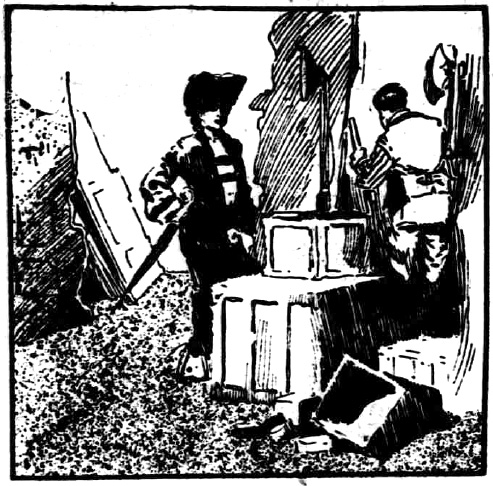The following first appeared in 1905 in the St. Louis Republic:
Theatrical managers depend much for the successful production of their play upon the Property Man: With the first-class companies this individual, whose name is not on the programme, is considered the most indispensable personage in the make-up—some of the things he has to do.

In the present-day theatrical production there is a man behind the gun, and he is the party with the cash. The man in charge of the powder magazine and the man who sends the ammunition to the firing line is the property man.
All things considered, he is the most indispensable personage included in the make-up of the modern theatrical company, especially the first-class productions. While not in the least a dictator or the one above all others of whom the principals even, to say nothing of the lesser lights, stand in awe, he is of more supreme importance to the management than is many another who gets his picture in the dramatic columns of the daily prints, or who is posted upon the bill boards weeks in advance of the arrival of the show.
In most of the productions which appear at the better theaters nowadays, the leading man or the leading woman has an understudy who, in case of a sudden emergency, may throw on a costume, and without a moment’s extra preparation, go ahead with a part which may mean the making or breaking of the show for that performance. Not so the property man. Rain or shine, fair weather or foul, one-night stands or seasons of two or three weeks, there is no excuse for his absence from his post of duty, and usually no one who can step into his shoes at an instant’s notice.
When the question of putting on a show is resolved into its essential details, the solution gives to the man who handles and who is responsible for all the little things about the production, the largest proportion possibly of responsibility as is assigned to any man or woman connected with the company.
Naturally it is the star who catches the eye and ear of the audience. When the hero does and dares it is he whom the spectators are with heart and soul, and the curtain goes down upon the last set while auditors join in exclamations of rapture over the work of their idol. They fail to take into consideration that when from his trusty revolver sped the fatal bullet which winged the bold, bad villain, none other was responsible for the blank cartridge and the wreaths of white smoke which curled above than the humble property man.
Originally published in The St. Louis Republic, January 1, 1905.




